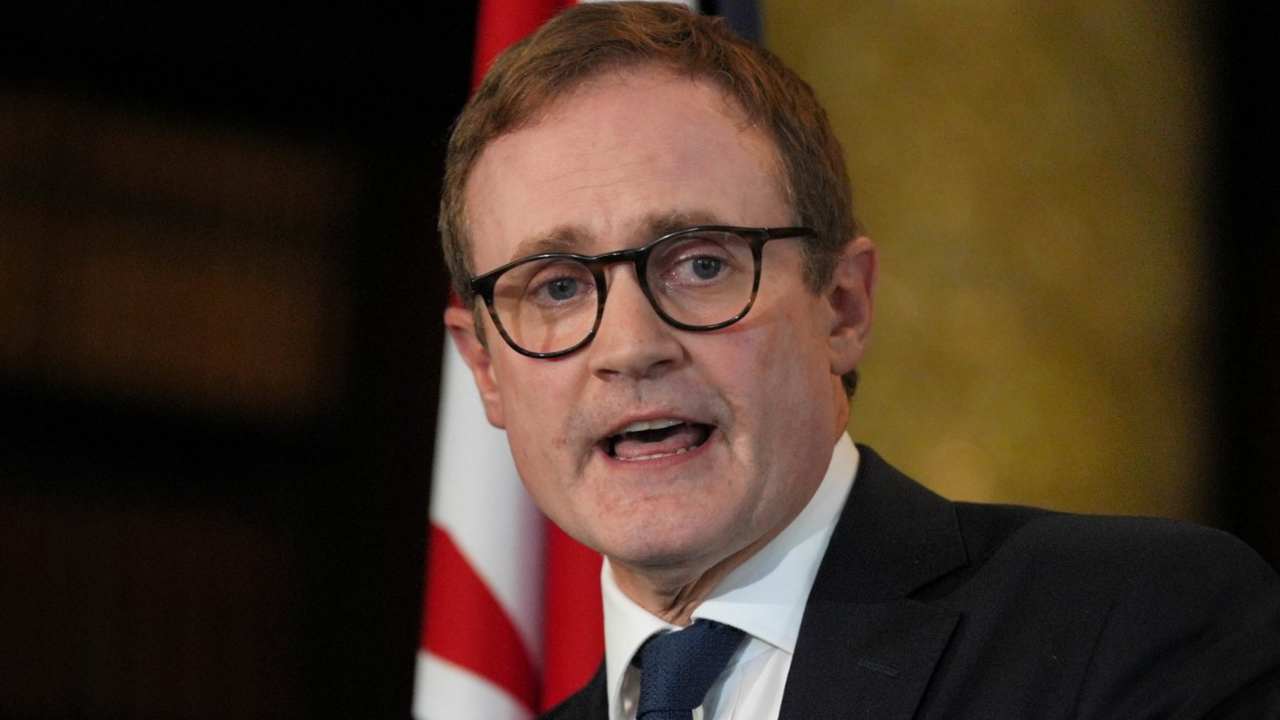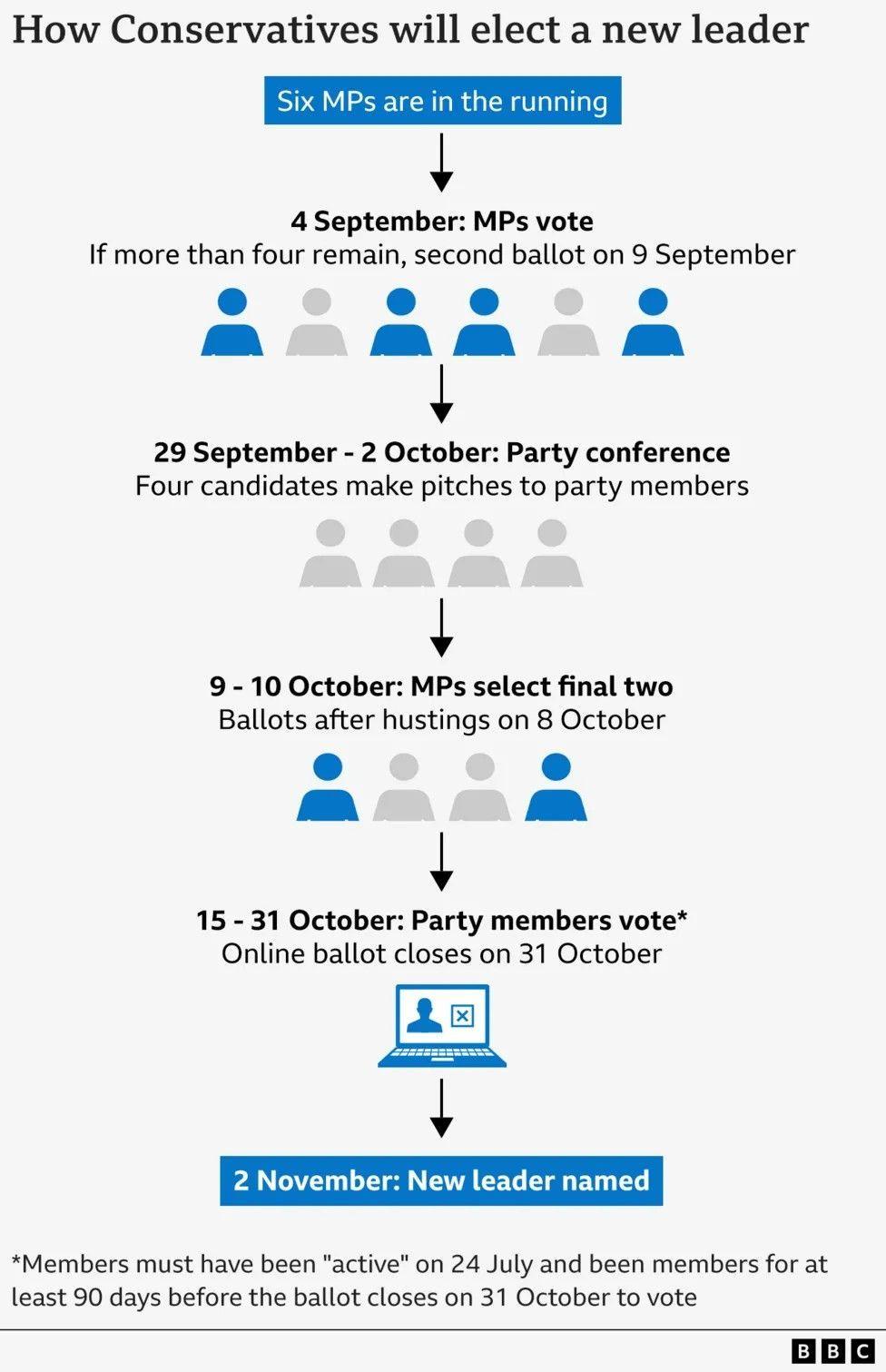Tory leader hopeful Tugendhat calls for ECHR reform

Conservative leadership candidate Tom Tugendhat speaks at a campaign event
- Published
Conservative leadership hopeful Tom Tugendhat has said human rights laws are preventing the deportation of "murderers and rapists" and should be reformed.
The former security minister said he was willing to leave the European Convention on Human Rights (ECHR) if it prevented the government from deporting foreign criminals and he was unable to reform it.
Mr Tugendhat made the promise in a speech outlining his bid to take over the leadership of the Conservative party from Rishi Sunak.
Leadership rival Robert Jenrick has already said he does not believe the ECHR can be reformed and is campaigning for the UK to leave.
Tories make leadership pitches as Parliament returns
- Published2 September 2024
How will the Conservatives choose their new leader?
- Published22 October 2024
Who could replace Rishi Sunak as party leader?
- Published22 October 2024
Other contenders, including Dame Priti Patel, who recently defended her record on immigration, Kemi Badenoch and James Cleverly, have all suggested talk of leaving the ECHR to lower immigration levels was too simplistic.
Speaking at the Royal Horseguards Hotel in Whitehall, Mr Tugendhat said there must be an overhaul of what he described as outdated ECHR rules and, if that failed, he would not rule out leaving completely.
"The entire purpose of international treaties is to keep British people safe, not for us to worship international treaties," he said.
Answering questions from journalists, Mr Tugendhat said the treaty was written "for a different world", and the UK should be able to opt out of some aspects.
"If it turns out that the treaty can't be reformed and I can't protect people from violent criminals, from murderers and rapists, then yes, we will leave the ECHR," he added.
Following his party's historic election defeat in July, Mr Tugendhat kicked off his speech by saying: "I want to start with an apology - the Conservative Party owed you better. Politics is not a game."
Focusing on immigration, he said: "To drive change we do need clear targets, otherwise there's always going to be another excuse, so under my leadership the maximum level of non-British net migration will be capped at 100,000 people per year.
"That will allow businesses to start planning for a different kind of economy and make sure that everybody understands long in advance that the public sector cannot depend on other people's children to step in for our own."
Mr Tugendhat also insisted his Tory competitors were friends whose common enemy is Labour leader and new prime minister Sir Keir Starmer.
All six leadership candidates are expected to take part in a hustings on Tuesday afternoon before a vote by Conservative MPs on Wednesday.
MPs will whittle six candidates down to two, before the rank and file Tory membership vote for the eventual winner, who is expected to be declared on 2 November.
